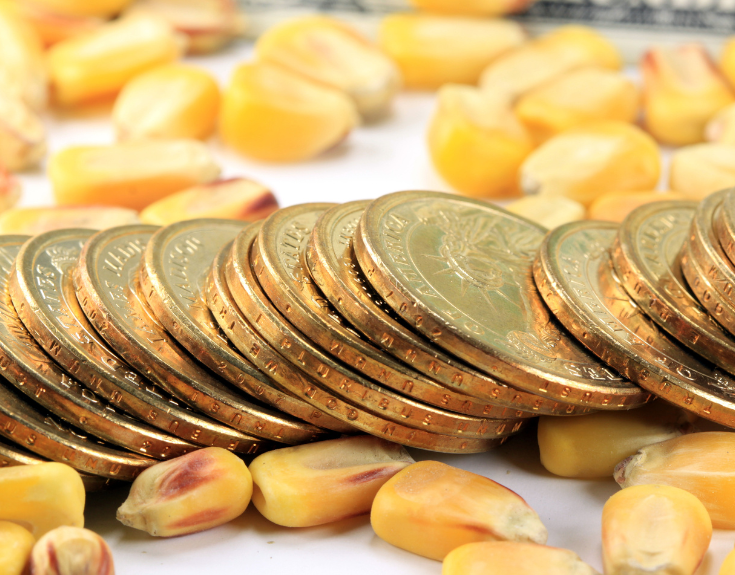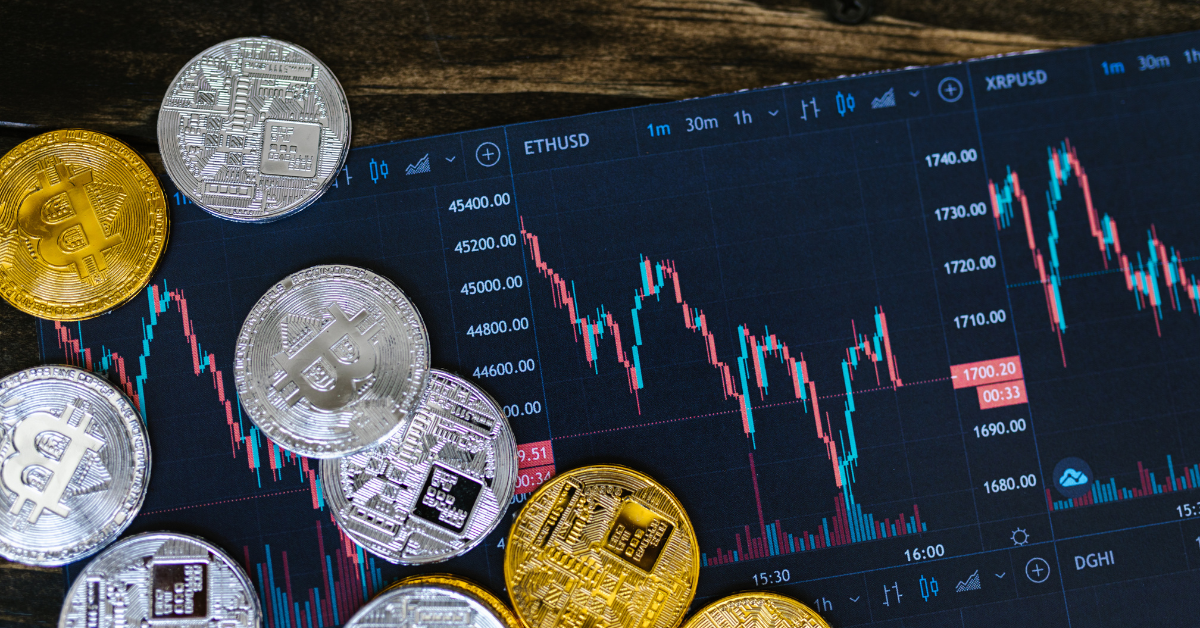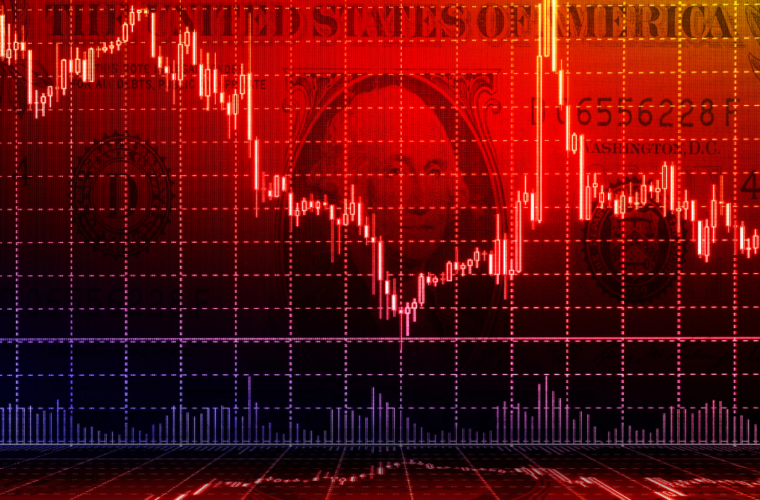
How to Invest Wisely in Commodities
“How to Invest Wisely in Commodities: Explore how commodities play a crucial role in the global economy, offering opportunities for portfolio diversification, inflation hedging, and potential substantial returns.” The world of commodity investing is multifaceted, with various approaches available to investors. In this comprehensive guide, we will delve into different avenues for investing in commodities, equipping you with the knowledge needed to make informed investment decisions.
Physical Ownership
Owning physical commodities is a classic and tangible way of investing, primarily in precious metals like gold and silver. These precious metals have long been regarded as safe havens and stores of value. When you invest in physical commodities, you typically purchase them in the form of bullion, which comes in standardized sizes and purity levels. However, this method of investing presents certain challenges, including storage, insurance, and liquidity issues. Moreover, most commodities, beyond precious metals, have limited shelf lives and require substantial storage space, making physical ownership less practical for many investors.
Futures Contracts

Futures contracts provide a direct path to speculate on commodity prices. When you enter into a futures contract, you commit to buying or selling a specified quantity of a commodity at a predetermined price and date in the future. Futures contracts offer leverage, allowing investors to control larger positions with their existing capital. In most cases, these contracts are cash-settled, negating the need for physical delivery of commodities. However, to trade futures, you need a margin account and must often meet specific financial requirements, including maintaining a minimum balance.
Individual Securities
Investors can gain exposure to commodities by investing in individual securities of companies involved in commodity processing or production. To identify these companies, you can use a stock screener and look for those within the basic materials or energy sectors. Investing in individual securities requires a deeper understanding of the industry. Factors like feasibility studies, reserves, and global demand significantly impact the stock prices of these companies. Larger corporations may have diversified operations, which can mitigate the impact of individual feasibility studies, whereas smaller companies may be more sensitive to such events.
Mutual Funds, ETFs, and ETNs

For a diversified approach to commodities, mutual funds, exchange-traded funds (ETFs), and exchange-traded notes (ETNs) are viable options. These investment products pool funds from various investors and employ various strategies to gain exposure to commodities. These strategies can include investing in commodity futures, options, commodity-related stocks, or even physical goods. Some of these funds are leveraged, aiming to provide multiple times the price movement of the underlying commodity. It’s essential to thoroughly review fund disclosures to ensure they align with your investment goals and risk tolerance.
Alternative Investments
Commodities are categorized as alternative investments, much like real estate, as they do not conform to the typical stock and bond market dynamics. Within the realm of precious metals, there is a subcategory that leans towards collectibles rather than straightforward investments. Bullion coins and jewelry, for instance, hold aesthetic and historical value and often trade at a premium to their intrinsic metal value. These items are more akin to collectibles and have a weaker connection to market prices.
Best Online Trading Platforms
| Trading Platforms | Account Types | Account Minimums | Trading Fees | Tradable Securities | Robo-Investing |
| Fidelity | Individual, IRA, 529 College Savings | No minimum | $0 commission for US stocks, ETFs and options trades | Stocks, Fractional Shares, Mutual Funds, IPOs, ETFs, Options, Bonds, Precious Metals, Index, Bonds, Crypto | Yes |
| Merrill Edge | Online Broker | No minimum | $0.00 per stock trade. Options trades $0 per leg plus $0.65 per contract | Stocks, Options, Mutual Fund, ETFs, Bonds, CDs, | Yes |
| Betterment | Individual, Joint, Trust,Traditional IRA, Roth IRA, SEP IRA, Inherited IRA, Cash Reserve, Checking Account | No minimum | $4 monthly fee or 0.25% annual advisory fee for accounts over $20,000 | ETFs and Crypto diversified portfolios | Yes |
| TD Ameritrade | Individual, Joint, Guardianship, Traditional IRA, Roth IRA, SEP IRA, Solo 401k, 529 Plans, UGMA/UTMA, Coverdell Education Savings Account | $0 for self-directed brokerage account | $0 commission for stocks, ETFs, mutual funds and options trades. $0.65 per contract fee. $6.95 commission for OTC stock trades. | Stocks, ETFs, Mutual Funds, Options, Bonds, Futures, Forex Currency, IPOs, Crypto | Yes |
| E*Trade | Brokerage, Custodial Account, Coverdell ESA, Traditional IRA, Roth IRA, Rollover IRA, Managed Portfolios | $0 for self-directed brokerage account | $0 commission for online US-listed stock, ETF, mutual fund and options trades | Stocks, ETFs, Options, Futures, Mutual Funds, Bonds | Yes |
| Charles Schwab | Individual, Joint, Traditional IRA, Roth IRA, Rollover IRA, Intelligent Portfolios | No minimum | $0 commission on listed stocks, ETFs, mutual funds and options | Stocks, ETFs, Options, Mutual Funds, Bonds, Futures, Annuities, International Stocks | Yes |
Opening a Commodities Investing Account
The process of opening a commodities investing account closely mirrors that of establishing a standard brokerage account. If you intend to invest in commodities through companies and funds, a typical brokerage account will suffice. However, if you are considering trading futures and options, you must ensure that your chosen broker offers these instruments. Additionally, you may need to make additional disclosures to confirm your understanding of the risks associated with these complex financial products and to demonstrate that you have adequate capital to handle potential market fluctuations.
Pros and Cons of Commodity Investing: Commodity investing, like any other form of investment, has its advantages and disadvantages.
Pros:
- Inflation Hedge: Commodities tend to rise in value with inflation. They often serve as indicators of inflationary environments. While there can be commodity-specific factors that counter overall inflation, such as bumper crops, commodities, in general, move with inflation and can offset the dampening effect of inflation on other assets in an investor’s portfolio.
- Diversification: Commodities offer portfolio diversification due to their low correlation with financial assets. Their values are influenced more by basic supply and demand factors rather than employment figures or central bank policies.
- Potential for Large Returns: Commodities like oil, gold, and certain soft commodities with cyclical production can experience significant price movements. They are sensitive to production forecasts and global events that impact supply chains. These opportunities for profit attract investors to the commodities market.
Cons:
- Lack of Income: Investing in commodities does not generate yield income like bonds or dividend-paying stocks. The return on a commodities investment relies on correctly predicting price movements.
- High Volatility: Commodities can experience abrupt market dynamics shifts due to global events. For example, the prices of wheat and oil surged due to geopolitical tensions, impacting the futures and options markets. These market movements can be sharp and unpredictable.
- External Risks: Commodities face various external risks beyond an investor’s control. These risks include regional conflicts disrupting supply, climate-related risks, regulatory and political risks hindering the flow of goods, and supply chain risks. However, these risks are also why the commodities market offers potential for substantial returns.
Factors to Consider When Opening an Investment Account for Commodities Trading
Not all brokerage platforms offer commodities trading. Some digital investment managers focus solely on ETFs and stocks. Larger brokers and trading-focused platforms generally provide futures trading options. Examples include Schwab, Interactive Brokers, E*TRADE, NinjaTrader, and TradeStation. When opening an investment account for commodities trading, consider the following factors:
a. Customer Support
Customer support can vary widely among brokers. Most brokers offer phone and email support, while some have added in-platform chat and social media channels for customer communication. A few brokers have adopted digital-only customer service, relying on FAQs and email contact forms. When evaluating customer service, ensure that the broker can be reached through your preferred method.
b. Fees
Fees for commodities trading differ from those associated with stocks and ETFs. Commodity futures fees are calculated on a per-contract basis and can range from minimal amounts to several dollars. While lower fees are attractive, it’s essential to consider them in the context of the overall quality of the trading platform.
c. Available Assets
While most brokers offer stocks and ETFs, commodities, especially futures, are a more specialized offering. To invest in commodities effectively, you’ll want access to major futures exchanges, unless you plan to work exclusively with ETFs.
d. Security and Reputation
Your chosen broker should prioritize the security of your portfolio and have your best interests at heart. Look for brokers that adhere to industry standards regarding security protocols, including two-factor authentication, and have plans in place to prevent outages and data breaches.
e. Minimum Deposit
Many brokers now offer accounts with low or no minimum deposits to encourage investment. However, when it comes to commodities trading, it’s crucial to have a substantial amount of capital to support margin accounts and withstand potential market fluctuations. Commodities investing is inherently risky and should not constitute the majority of your investment portfolio.
f. Research Tools
Research tools are essential for understanding and visualizing market dynamics when investing in commodities. Robust trading platforms can help by aggregating quotes into charts, analyzing volume and volatility, and providing important information like headlines and calendar events. Some brokers charge for extra data feeds, so compare costs and features when selecting a broker.
What Are Commodities?
Commodities are the raw, or simplest, forms of inputs used to produce energy, food, consumer products, and more. Metals, such as gold and silver, are well-known commodities. They often serve as hedges against economic downturns and are valued for their intrinsic worth. Other commodities like copper, sugar, and steel have various applications and are sensitive to economic activity and market dynamics.
What Is Commodities Investing?
Commodities investing involves adding commodities as an asset class to your investment portfolio. This can be done directly by investing in physical commodities like gold or indirectly through financial derivatives traded on exchanges. Financial derivatives include options, futures, commodity tracking funds, and shares in companies directly involved in producing or processing commodities. Investors in commodities are driven by the potential for substantial returns, the protection against inflation, and the desire for diversification owing to low correlations with traditional financial markets.
What Are Some of the Most Popular Commodities to Invest In?

Some of the most widely traded commodities include precious metals (gold, silver, platinum), energy resources (oil, natural gas), agricultural products (corn, wheat, soybeans, cattle, hogs), and soft commodities (sugar, lumber). Note that financial assets, such as equity indices, interest rates, and currencies, currently dominate futures trading volumes, rather than raw commodities.
How Do Leveraged Commodity ETFs Work?
Leveraged commodity funds trade fund shares and frequently classify themselves as bull or bear funds, signifying their market stance. Investors in these funds purchase shares in the fund, which then utilizes its available capital to make direct and indirect trades related to the underlying commodity. Leveraged funds can hold futures, options, shares, and other financial instruments, aiming to deliver multiples of the reference index’s performance. For example, a leveraged oil fund may seek to provide two times the price change in West Texas Intermediate Crude Oil (WTI).
Conclusion:
Investing in commodities is a dynamic and potentially rewarding venture, offering diversification benefits and opportunities to protect against inflation. However, it comes with its unique set of challenges, such as volatility and external risks. To embark on a successful commodities investment journey, you have an array of options, including physical ownership, futures contracts, individual securities, mutual funds, ETFs, ETNs, and alternative investments. Each approach has its own pros and cons, necessitating a careful assessment of your investment objectives and risk tolerance.
Commodities investing can be a complex undertaking, and understanding your options is the first step towards making informed investment decisions. As you embark on your journey, it’s essential to stay well-informed, craft a clear investment strategy, and remain vigilant in monitoring market dynamics and trends. By arming yourself with knowledge and understanding the nuances of commodity investing, you can navigate this multifaceted realm with confidence.



































